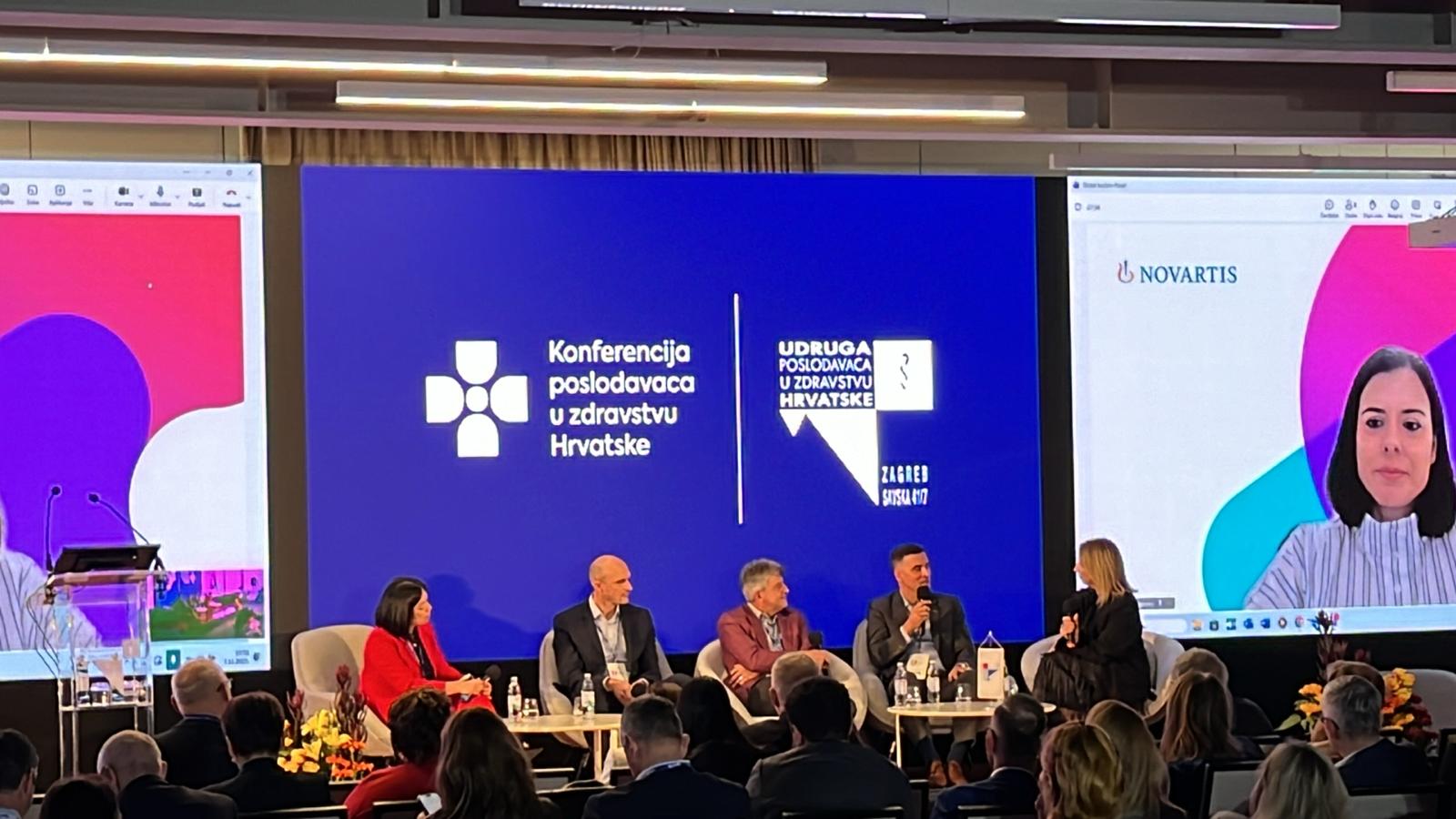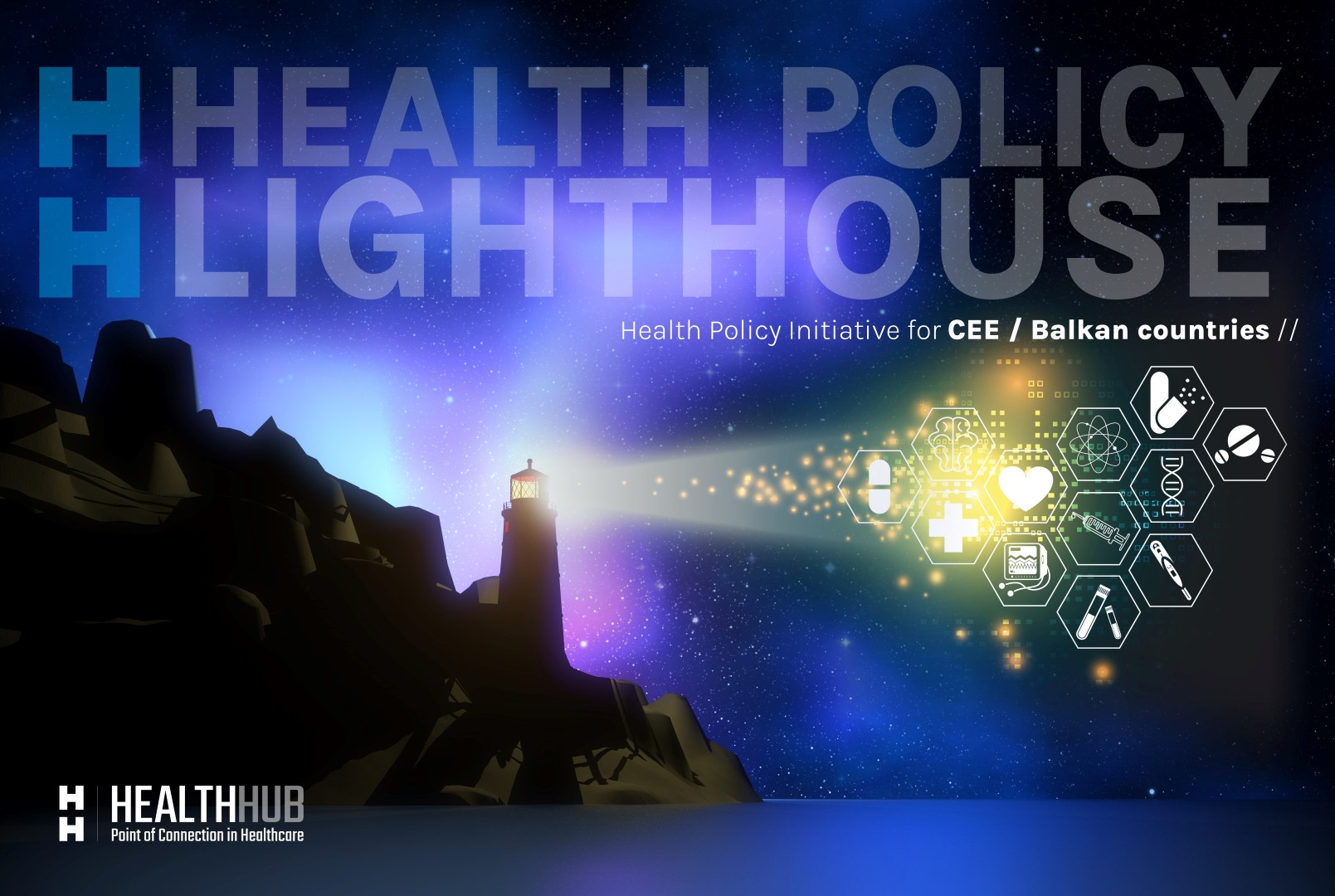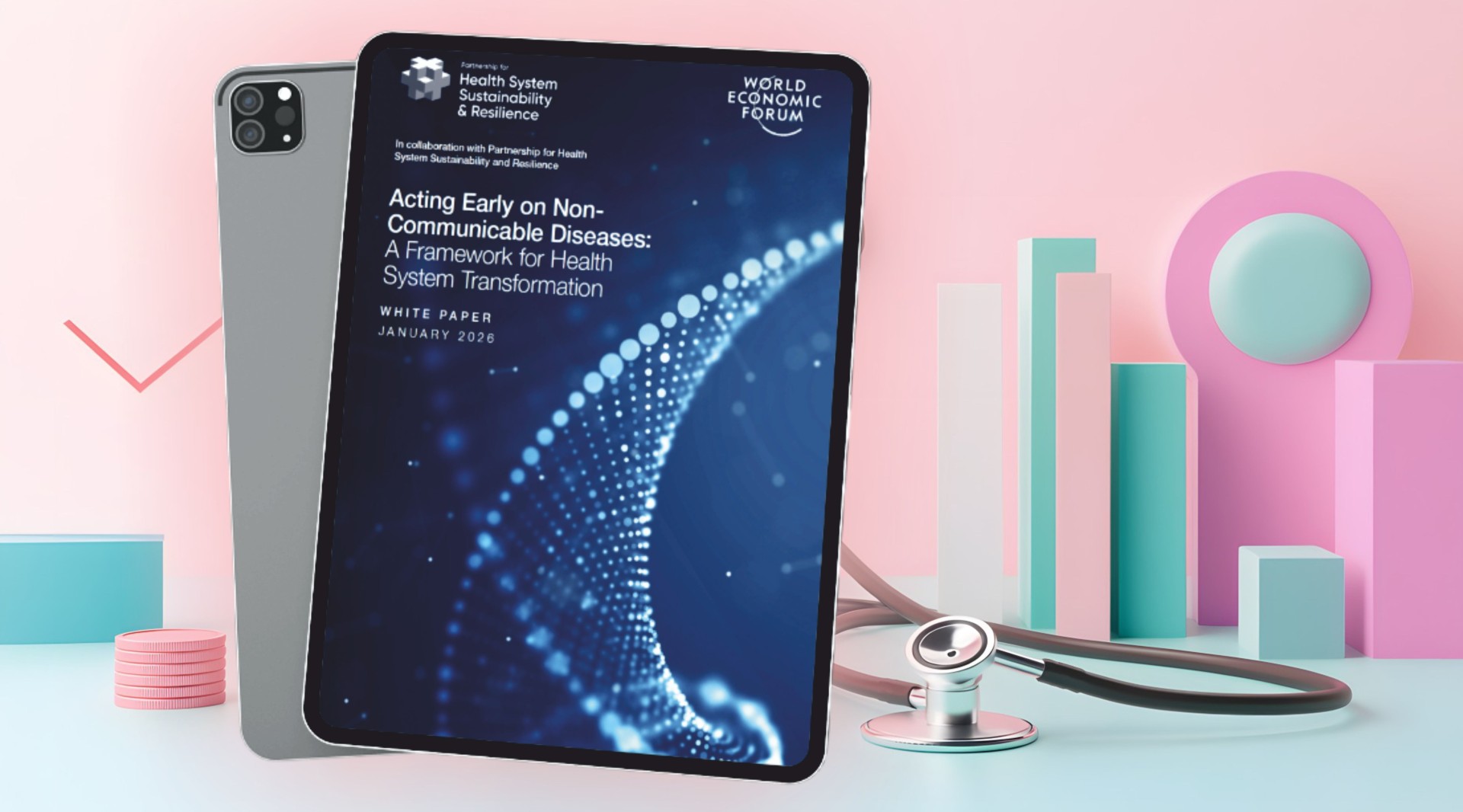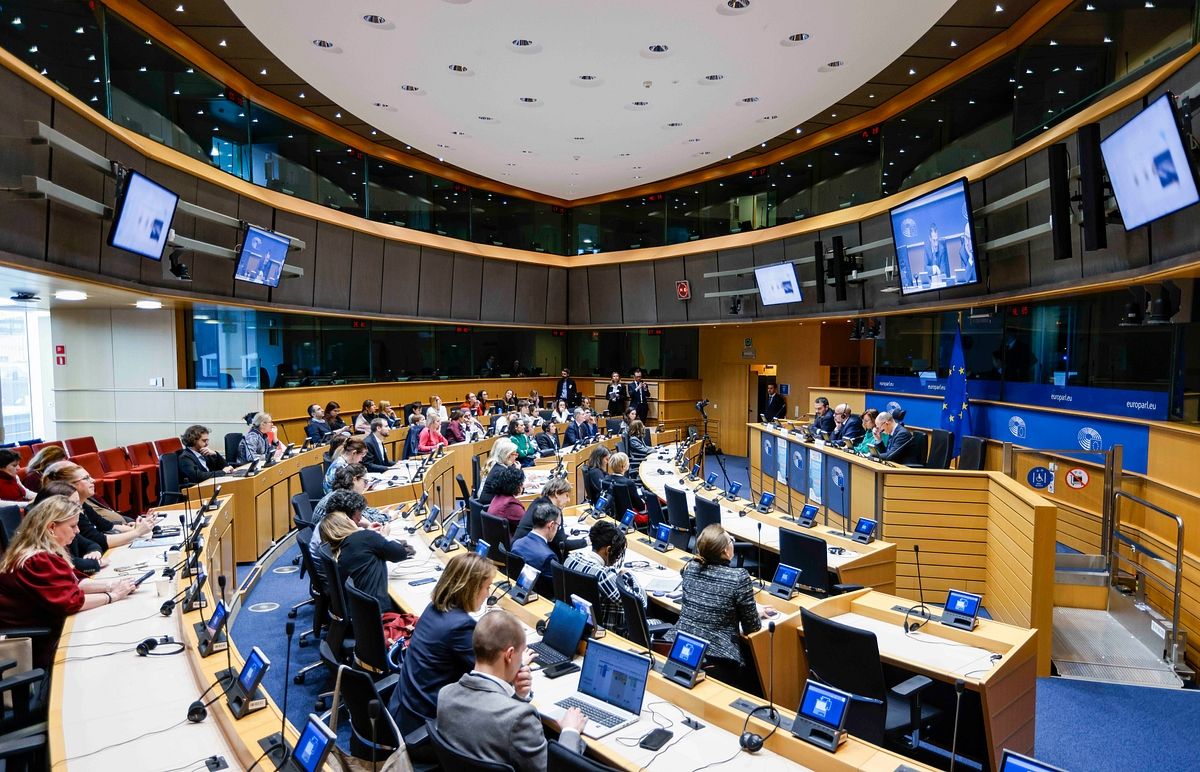Healthcare Systems Through the Eyes of Global Leaders from Innovative Pharmaceutical Industry: Reflections from the UPUZ Conference in Opatija
he annual conference of the Croatian Employers’ Association in Healthcare (UPUZ), held once again in Opatija, gathered a group of high-profile global executives from the world’s leading innovative pharmaceutical companies.
The panel “Healthcare Systems Through the Eyes of Global Leaders” brought together Francis Lepoutre (Roche), Schalk Opperman (Merck), Robin Duurland (J&J Innovative Medicine), Mariko Shimizu (Novo Nordisk), and Sandra Velasco (Novartis) — each bringing a unique perspective shaped by careers across continents, diverse health systems, and decades of leadership experience. Panel was moderated by Anita Bujanić, Founder and CEO of Health Hub, first regional think tank for healthcare.
Their reflections make one thing clear: Croatia stands at a pivotal moment, possessing strong foundations, emerging excellence, and a unique national size advantage — but also facing structural gaps that require courageous decisions, outcome-focused policies, and a new level of collaboration across all stakeholders.

1. First Impressions: Openness, Pragmatism, and Untapped Potential
For many of these leaders, Croatia is a new professional destination — but one that has inspired quick admiration.
Francis Lepoutre, after 17 years across eight countries, highlighted Croatia’s “accessibility and openness of healthcare professionals to work with industry”, something he contrasted with more restrictive environments in some countries. Yet he also pointed to the need to shift interactions from product-focused conversations toward patient-journey discussions, underlining that companies are “more than suppliers of products; our intent is to support the entire patient journey”
Francis praised Croatia’s problem-solving mentality, describing Croatian professionals as “pragmatic and solution-oriented,” but noted inconsistencies between ambitions and actions — for example, slow implementation of stronger anti-smoking measures despite clear evidence on lung cancer causality
This duality — strong intentions but uneven execution — became a recurring theme throughout the panel.
Robin Duurland, only two months into his role, reflected that Croatia is “one of the most beautiful places to live, but also a place where there is real work to do in healthcare”
He underscored the impressive progress already made in cancer outcomes — with mortality declining sharply since 2012 — but emphasized Croatia remains second-highest in cancer mortality in Europe, signaling an urgent need for sustained improvement
Mariko Shimizu, newly arrived from Japan, offered a strikingly positive and personal account: after a knee injury, she experienced fast, compassionate, English-speaking care and full recovery within eight weeks. Her conclusion: Croatia’s health professionals deliver “very positive, patient-oriented and high-quality care”.

2. Innovation Readiness: Progress Worth Celebrating — and Expanding
Panelists emphasized Croatia’s emerging leadership in several areas:
Lung and prostate cancer screening
Croatia was commended as the first EU country to implement a national, AI-driven lung cancer screening program integrating cloud solutions and primary care referrals — an achievement several panelists described as “remarkable” and “visionary”
Outcome-driven thinking
As Robin noted, Croatia is “increasingly focusing on outcomes — judging interventions based on real results”, a shift that positions the country well for modern value-based care models
Centers of Excellence (CoE)
Panelists highlighted multiple success stories:
+ gene therapy for inherited retinal diseases at the Sveti Duh Hospital, treating patients from 15 countries, making Croatia the 6th country globally to apply this therapy
+ precision oncology initiatives, including a national Comprehensive Genomic Profiling lab in Zagreb, which Francis described as “top-notch technology that must be used to its full capacity” — currently at only 30% utilization, but able to test 5,000 patients annually
Yet these successes coexist with systemic barriers: slow access to innovative medicines, uneven regional access, siloed decision-making, insufficient investment relative to EU averages and workforce shortages and talent outflow.
The panelists agreed that Croatia is ready for innovation — but must now translate readiness into systemic transformation.
“Croatia is ready for innovation — but must now translate readiness into systemic transformation.”

3. Investment in Healthcare: From “Cost” to Strategic National Capital
A central message came from both Francis Lepoutre and Sandra Velasco:
Croatia must redefine healthcare as a strategic investment — not an expenditure.
Sandra stressed that Croatia invests 7.7% of GDP in healthcare, far below the EU average of 10.7%, placing it alongside Spain as a system underfunded relative to ambition and values . She framed healthcare investment as “a strategic priority for economic resilience and social stability” rather than a budget burden.
Francis offered a memorable comparison:
Croatia’s national innovative medicines fund amounts to €9 per citizen per month — roughly the price of a basic Netflix subscription. His point: Croatia is already achieving impressive outcomes with limited investment, but “if healthcare is a strategic asset, we must invest like it is one”.
He added that Outcome Tracking should be mandated:
Just as investors monitor returns, health systems must track the real-world impact of their investments. The example of the Breast Cancer Screening Program shows how measured investments drive real survival improvements
“Croatia is already achieving impressive outcomes with limited investment, but “if healthcare is a strategic asset, we must invest like it is one”.

4. Breaking the Silos: Toward Trust-Based, System-Wide Collaboration
Across all five leaders, a shared diagnosis emerged:
Croatia’s stakeholders work hard — but too often, separately.
Mariko described this as a cultural pattern:
“People focus on their own piece of the problem, not the system-wide impact”, referencing examples where pricing rules or reimbursement decisions inadvertently push medicines off the market because officials follow rules without considering broader consequences
Schalk Opperman echoed this, urging a shift toward a “helicopter view” and shared ownership of healthcare outcomes. He highlighted that policies taken in isolation can be detrimental when not viewed in a system context — a theme reinforced by multiple examples from pricing and reimbursement practices.
Sandra argued that collaboration, trust, and innovation in operating models are essential for sustainability:
“Each stakeholder brings unique value. When we collaborate with openness and trust, the system becomes stronger.”
The consensus: Croatia needs institutionalized, structured cooperation frameworks between government, hospitals, industry, and patient groups — not occasional consultations or informal dialogue.
“Croatia needs institutionalized, structured cooperation frameworks between government, hospitals, industry, and patient groups — not occasional consultations or informal dialogue.”

5. Equity and Access: From Urban Excellence to National Reach
Although Croatia boasts impressive specialist centers, access remains uneven, particularly outside major cities.
Mariko emphasized that this is not uniquely Croatian — Japan and other EU states face similar challenges — but the solution lies in reorganizing the system around hub-and-spoke models inspired by France’s two-tiered approach. In her view:
CoEs must evolve into national ecosystems, connecting: regional hospitals, primary care, research networks and prevention and early detection pathways-
This would allow patients across the country to benefit from expertise concentrated in major centers, while also reducing unnecessary pressure on tertiary hospitals.
“Centers of Excellence must evolve into national ecosystems, connecting: regional hospitals, primary care, research networks and prevention and early detection pathways-
This would allow patients across the country to benefit from expertise concentrated in major centers, while also reducing unnecessary pressure on tertiary hospitals.”

6. Public–Private Partnerships: A Missed Opportunity
Schalk and Sandra both argued that Croatia underutilizes Public-Private Partnerships (PPPs).
Schalk drew on experiences from South Africa and Romania, where PPPs supplement strong public systems without undermining them. His key clarification:
“This is not about doctors moonlighting between sectors — it’s about building complementary public and private capacities.”
Sandra added that Croatia — with its strong academic reputation and medical talent — could leverage private-sector collaboration to accelerate innovation, enable faster adoption of new therapies, and strengthen Centers of Excellence.
“Croatia, with its strong academic reputation and medical talent, could leverage private-sector collaboration to accelerate innovation, enable faster adoption of new therapies, and strengthen Centers of Excellence.”

7. Policy Inspirations from Abroad: What Croatia Can Learn
Panelists offered lessons from other healthcare systems:
Netherlands (Robin): structured, transparent patient pathways, fast access to specialists, a culture of accountability where “taxpayers know how every euro is used”, high satisfaction among both patients and physicians
Germany (Robin): value-based pricing mechanisms that allow immediate access, price adjustments based on real-world performance
South Africa and Romania (Schalk): PPPs supplement strong public systems without undermining them; it’s about building complementary public and private capacities
Japan (Mariko): a strong national focus on prevention, rapid implementation of public health measures due to top-down coordination, cultural disciplines that embed preventive screening
Spain (Sandra): preservation of strong public healthcare traditions, the need for modernization through outcome measurement and innovative financing
These lessons validate that Croatia’s challenges are solvable — and many systems have already paved the way.

8. The Role of Data, Digitalization, and the EU Health Data Space
As the discussion moved toward the healthcare of the future, digitalization emerged as a central enabler.
Robin emphasized the transformative effect of Digital Data Networks, particularly given Croatia’s strong involvement in the EU Health Data Space pilot with five major hospitals already connected. He also noted AI’s role in accelerating R&D timelines and improving genomic analysis in oncology.
Sandra stressed that Croatia’s size is a strategic advantage — its compactness makes national digital integration easier than in larger systems. Nation-wide registries, real-time data flows, and outcomes tracking could be implemented quickly and economically.
Mariko highlighted telemedicine and eHealth as accessible tools for decentralizing expertise and supporting prevention campaigns, early detection, and patient follow-up.
“Croatia’s size is a strategic advantage — its compactness makes national digital integration easier than in larger systems.
Nation-wide registries, real-time data flows, and outcomes tracking could be implemented quickly and economically.”

9. The Final Takeaway: A Call to Bold, Coordinated Action
At the close of the panel, each leader was asked to propose one concrete step Croatia should take to build a more innovative, efficient, and patient-centered healthcare system.
Their answers converge into a compelling roadmap:
Francis (Roche): Focus relentlessly on patient experience end-to-end; measure patient-reported outcomes; reduce waiting times; embrace decentralized care; treat health as national capital.
Mariko (Novo Nordisk): Make prevention the foundation of sustainability, especially for obesity — the EU’s highest prevalence — drawing inspiration from Japan.
Robin (J&J): Treat innovation, screening, and prevention as economic growth strategies, not privileges.
Sandra (Novartis): Make collaboration the engine of innovation; integrate data systems; leverage Croatia’s size to coordinate care.
Schalk (Merck): Adopt a system-wide perspective: act as owners, invest strategically, and embrace PPPs.
Taken together, these messages form a unified vision:
Croatia has the talent, infrastructure, and cultural assets to become a regional leader in patient-centered, data-driven, innovation-ready healthcare — but it must now elevate ambition to match potential.

“Croatia has the talent, infrastructure, and cultural assets to become a regional leader in patient-centered, data-driven, innovation-ready healthcare — but it must now elevate ambition to match potential.”
The Opatija panel demonstrated not only the collective expertise of global healthcare leaders, but also their deeply positive outlook on Croatia’s future in healthcare transformation. Their reflections reveal a country with impressive achievements, unique structural advantages, and a strong foundation of professional dedication.
What Croatia needs now is the courage to act:
to invest, to collaborate, to innovate, and to put patient experience at the center of every decision.
As the panel thoughtfully concluded:
“Innovation has no purpose if patients cannot access it.”
Croatia is ready — and the next decade could define its leadership in European healthcare!
“Croatia is ready — and the next decade could define its leadership in European healthcare!”






